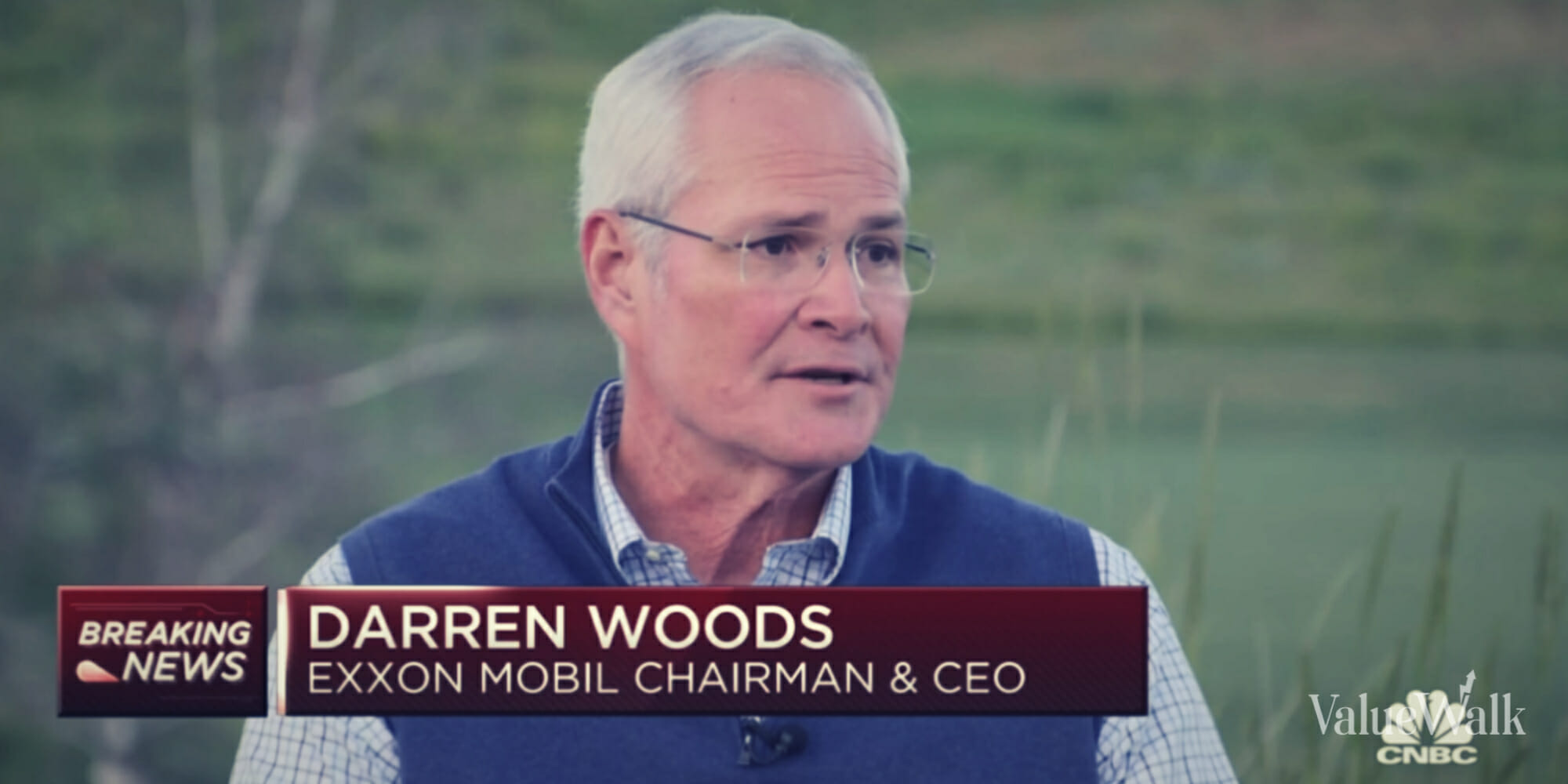Following are excerpts from the unofficial transcript of a CNBC exclusive interview with Exxon Mobil Corp (NYSE:XOM) CEO Darren Woods on CNBC’s “Squawk Box” today. Following is a link to video of the interview on CNBC.com.
Exxon Mobil CEO Darren Woods on $4.9 Billion Denbury Deal: It Allows Us To Further Reduce Emissions
Woods On Accelerating Business
We have three large scale contracts with third parties, companies that are in hardened decarbonize industrial sectors, fertilizer business, steel business, industrial gas business, this pipeline allows us to continue to accelerate and grow that business, do it at a much lower cost and a lot faster with a very large opportunity to further reduce emissions.
Woods On Buying Denbury
What we’re buying with denbury is 20 plus years of experience in sequestering CO2, storing CO2, but also the assets that move that CO2 and the storage cites strategically located along that corridor of high emissions sources so that we can cost effectively capture the CO2, transport it and sequester it underground.
Woods On Doubling EV Population
With the three deals that we’ve already done we’ve effectively doubled the population of electric vehicles on the road today with the amount of CO2 that we are sequestering so if you think about 100 million tons that’s 20 times that you can think about it in different terms, but that’s a lot of emissions being sequestered in fact that would be the largest reduction step reduction of CO2 emissions that we’ve seen anywhere in the world.
Woods On Denbury’s Solid Returns
The deal we’re doing today with denbury has really solid returns the contracts that we have today have really solid returns, they compete in our portfolio as we move out to more and more co2 less concentrated streams we got to make sure that the economics stand up.
Woods On Market Driven Business
I think the world is going to achieve its objectives to reduce emissions, we’ve got to move to a point where the market will pay to reduce those emissions. That’s the basis on which we’re planning we’re working to get that up and started to catalyze that to drive down costs and then transition to more of a market-driven business.





